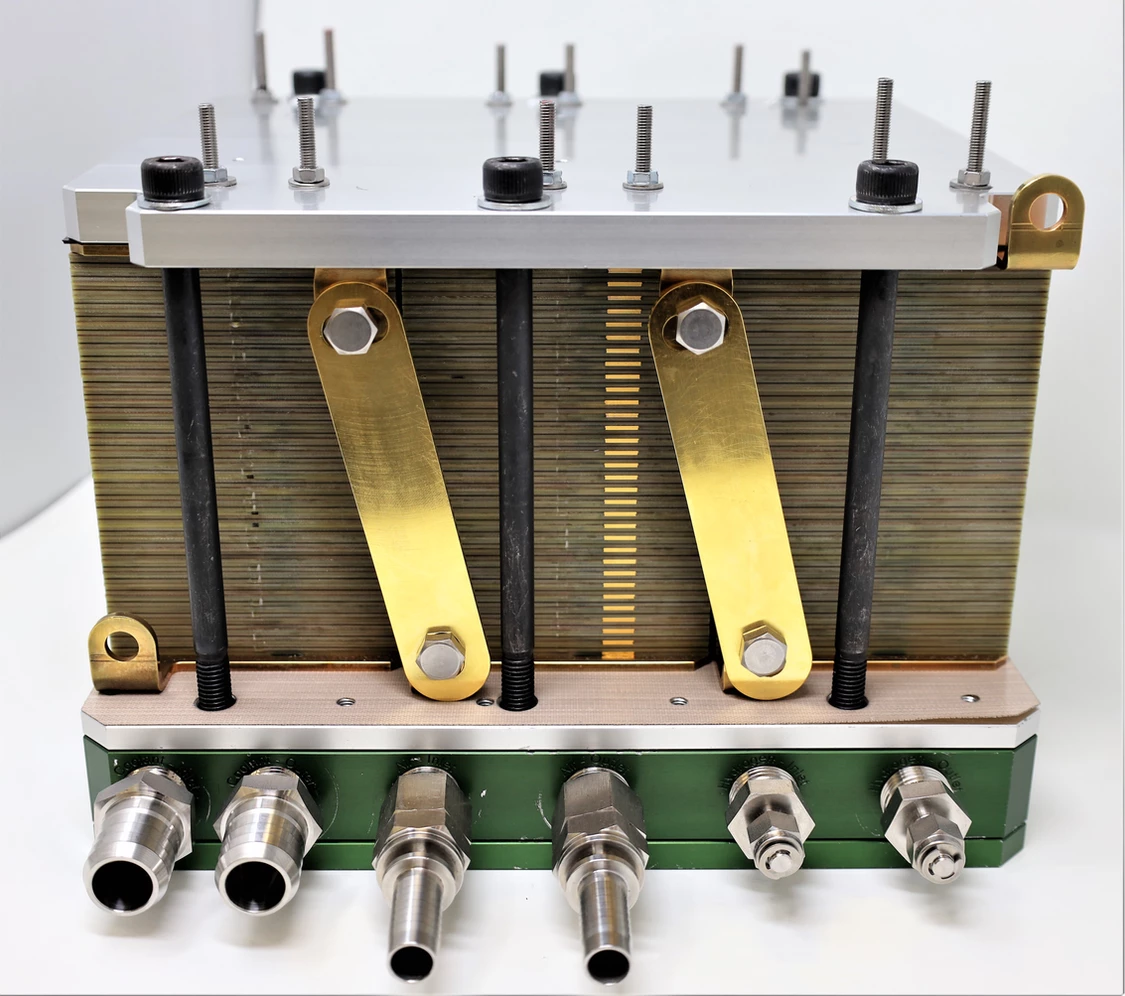Sea-Kit Wins Grant to Create World's First H2-Powered Unmanned Vessel
UK-based unmanned vessel startup Sea-Kit has won a government grant to install and test an innovative printed circuit board-based hydrogen fuel cell on its prototype USV Maxlimer, allowing the vessel to operate with zero onboard emissions. It will be the first hydrogen fuel cell system on a commercial USV, the company said.
Sea-Kit secured the grant through the UK government's Clean Maritime Demonstration Competition (CMDC). With funding from the Department for Transport (DfT) and support from InnovateUK, Sea-Kit will showcase a diesel-electric to hydrogen-electric conversion of Sea-Kit's USV design.
“Sea-Kit USVs have a dual diesel-electric hybrid drive, with propulsion coming from an electric motor powered by battery banks that are charged by in-situ diesel generators,” said Ben Simpson, Sea-Kit's CEO. “This project will replace one of the diesel generators with new hydrogen fuel cell technology . . . and demonstrate an offshore operation with zero carbon emissions.”

that matters most
Get the latest maritime news delivered to your inbox daily.
 The propulsion plant will be provided by West Sussex-based Bramble Energy, which builds printed circuit board fuel cells (PCBFCs). This technology has been under research since at least the early 2000s, but it is not as common as the everyday proton exchange membrane (PEM) and solid-oxide fuel cell (SOFC) designs seen in commercial applications today. According to Bramble, the PCBFC leverages a mature and ubiquitous manufacturing process - printed circuit boards - to lay out all of the main components of the cell in each plate in the stack, eliminating some of the complexity and size of traditional PEM fuel cells. The firm says that its PCB plates will also be better-suited to a marine environment than standard metallic or graphite end plates.
The propulsion plant will be provided by West Sussex-based Bramble Energy, which builds printed circuit board fuel cells (PCBFCs). This technology has been under research since at least the early 2000s, but it is not as common as the everyday proton exchange membrane (PEM) and solid-oxide fuel cell (SOFC) designs seen in commercial applications today. According to Bramble, the PCBFC leverages a mature and ubiquitous manufacturing process - printed circuit boards - to lay out all of the main components of the cell in each plate in the stack, eliminating some of the complexity and size of traditional PEM fuel cells. The firm says that its PCB plates will also be better-suited to a marine environment than standard metallic or graphite end plates.
The application of a hydrogen fuel source in a USV is believed to be a world first. Data gathered from bench testing and sea trials will be used for the design and construction of similar USVs, as well as for larger uncrewed vessel projects, Sea-Kit said.
